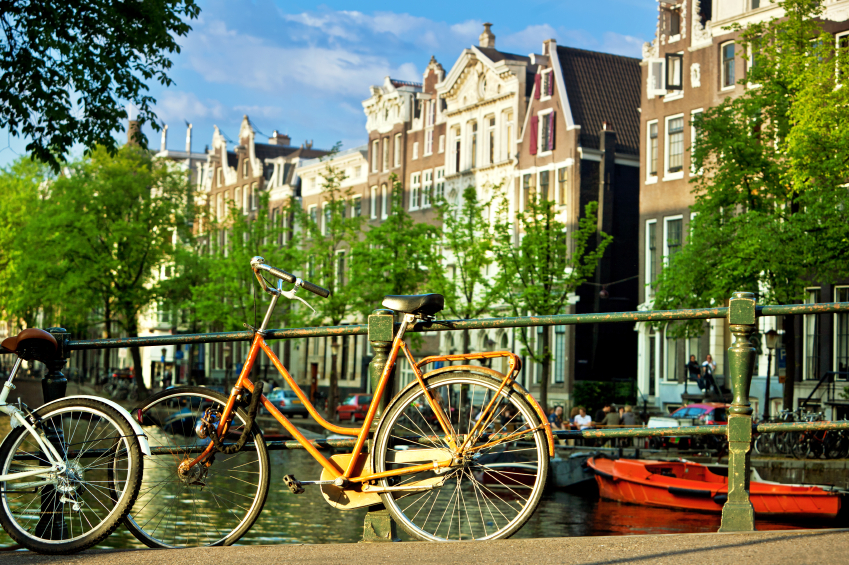The Netherlands’ name reflects its low-lying topography, with more than a quarter of its total area under sea level.
Now a constitutional monarchy, the country began its independent life as a republic in the 16th century, when the foundations were laid for it to become one of the world’s foremost maritime trading nations.
Although traditionally among the keener advocates of the European Union, Dutch voters echoed those in France by spurning the proposed EU constitution in a 2005 referendum.
The Netherlands has produced many of the world’s most famous artists from Rembrandt and Vermeer in the 17th century to Van Gogh in the 19th and Mondrian in the 20th. It attracts visitors from across the globe.
After a longstanding policy of neutrality between Europe’s great powers, the bitter experience of invasion and occupation during World War II led the Netherlands to become a leading supporter of international cooperation.
Almost 20% of the total area of the Netherlands is water, and much of the land has been reclaimed from the North Sea in efforts which date back to medieval times and have spawned an extensive system of dykes.
It is one of the world’s most densely populated nations. As in many European countries, over-65s make up an increasing percentage of that population, leading to greater demands on the welfare system.
After two decades of strong growth and low unemployment, the economy ran into more troubled waters as global trade, in which the Netherlands is a major player, slowed in the early years of the new millennium.
There was concern that Dutch society’s longstanding tradition of tolerance was under threat when homosexual anti-immigration politician Pim Fortuyn was assassinated in 2002.
Anxiety over increased racial tension has intensified further since the murder in 2004 of Theo Van Gogh who had made a controversial film on the position of women in Islamic society. A violent extremist later confessed and was jailed for life.
After Mr Van Gogh’s killing, the government hardened its line on immigration and failed asylum seekers.
Source: BBC World Country Profiles (http://news.bbc.co.uk/2/hi/country_profiles/default.stm)
